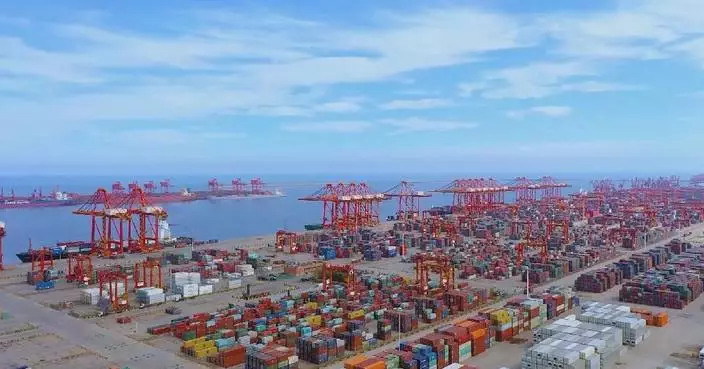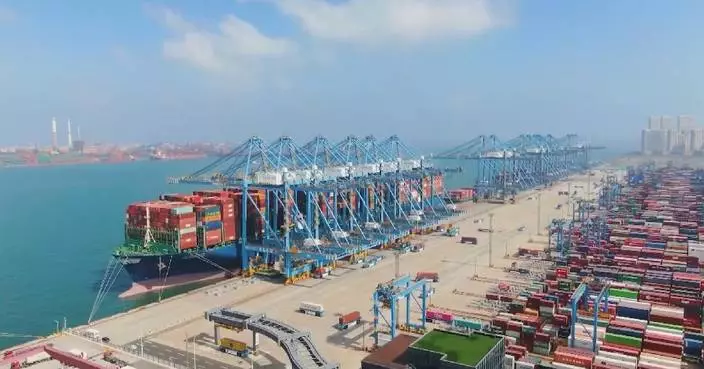As a popular first stop for overseas visitors to China, Shanghai is enhancing the consumer experience for tourists using foreign bank cards with its evolving digital payment systems.
Official data from the municipal government showed that, since late 2023, Shanghai has opened more than 37,000 foreign card point-of-sale (POS) terminals throughout the city.
International visitors who are short on time to withdraw cash or unfamiliar with China's digital payment systems have welcomed the expansion.
"We normally do the payment by cash only, but in case if you needed to do with credit card, we can do that," said an international visitor.
"Normal credit card, no problem. I think it is improving, yes." said another visitor.
A bank officer said that the acceptance of foreign cards will be further extended to small-denomination payment scenes in the metropolis.
"We have installed POS machines accepting foreign bank cards in 12 commerce sites and those major tourist attractions and hotels in the city. And we will continue to promote the coverage of those machines. Also, we will ensure major merchants in the city have enough small bills and increase the number of small bill withdrawal or exchange outlets in the city. There will be more small denominations available in the market," said Mao Jiansong, senior deputy manager of Operation and Channel Management Department under Bank of Communications' Shanghai Branch.
Some Shanghai taxis now accept foreign bank cards for fare payment, making the city a pioneer on the Chinese mainland for this convenient option. All these taxis will also provide a travel guide printed in English and Japanese, helping those who do not understand Chinese to communicate with drivers.
For visitors seeking a convenient all-in-one payment solution, the city has introduced the 'Shanghai Pass'. With a maximum balance of 1,000 yuan, this one-stop tourism pass can be used for public transportation and across tourism venues and shopping malls.
It requires no registration and any remaining balance can be refunded upon departure at designated locations throughout the city."
According to Sun Yao, general manager of Shanghai City Tour Card Development Co., the Shanghai Pass is designed to make small payments easier.
"It is designed to make small payments easier. After topping the card, you can pay for things without getting charged from stores. And there are QR codes on the front and back of the card. Cardholders can scan the codes to learn more about how to use it, as well as getting other useful information from the Municipal Administration of Culture and Tourism," said Sun.
According to the Municipal Administration of Culture and Tourism, Shanghai received 1.27 million tourists in the first quarter of this year, up 250 percent year-on-year, and is expected to receive about 5 million inbound tourists for the whole year.

Shanghai expands foreign card acceptance to enhance tourist experience





















































